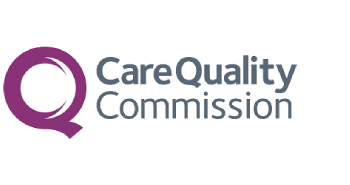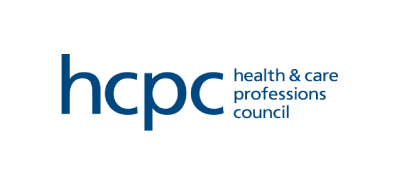Getting an ADHD diagnosis later in life can feel like finally finding the missing piece of a puzzle you’ve been working on for years. Many adults discover they have ADHD in their 30s, 40s, or even later, often after their own children receive a diagnosis or when life demands become overwhelming.
If you’re reading this because you’ve recently been diagnosed with ADHD as an adult, or you’re wondering if you might have it, you’re not alone. Late diagnosis is actually becoming more common as awareness grows and healthcare professionals better understand how ADHD presents differently across genders and ages.
Why ADHD Often Goes Undiagnosed Until Adulthood
ADHD wasn’t always understood the way it is today. For decades, it was seen primarily as a condition affecting hyperactive young boys who couldn’t sit still in class. This narrow view meant many people, especially women and those with inattentive symptoms, flew under the radar.
The “Quiet” ADHD Types Often Missed
Many adults with late diagnoses had what’s called inattentive ADHD. Instead of being disruptive, they were the daydreamers, the ones who seemed lazy or unmotivated, or the perfectionists who worked twice as hard to achieve the same results as their peers.
Women, in particular, were often overlooked because their symptoms didn’t fit the hyperactive stereotype. They might have been seen as chatty, emotional, or disorganised rather than having a neurodevelopmental condition that needed support.
Masking and Coping Strategies
Many people with undiagnosed ADHD become experts at hiding their struggles. They develop elaborate systems to remember things, work longer hours to compensate for inefficiency, or avoid situations where their difficulties might show. These coping strategies can be so effective that even they don’t realise they’re working much harder than necessary.
What a Late Diagnosis Really Means
It’s Not Your Fault
First and most importantly, having undiagnosed ADHD doesn’t mean you were lazy, stupid, or not trying hard enough. Your brain simply works differently, and you’ve been operating without the right tools and understanding for years.
Many people feel a mix of relief and grief after diagnosis. Relief that there’s finally an explanation for their struggles, but also sadness for the years of self-blame and missed opportunities.
Your Struggles Were Real
All those times you felt overwhelmed by simple tasks, forgot important things despite trying hard to remember, or felt like everyone else had received an instruction manual for life that you missed – those experiences were valid. ADHD explains why certain things that seem easy for others have always felt impossibly difficult for you.
You’ve Been Managing More Than You Realised
Getting through life with undiagnosed ADHD requires incredible resilience and creativity. The fact that you’ve made it this far, built relationships, held jobs, or raised children while managing ADHD symptoms without support shows remarkable strength.
How ADHD Might Have Affected Your Life
Understanding how ADHD has influenced your experiences can help make sense of patterns you’ve noticed over the years.
Work and Career Challenges
You might have struggled with organisation, time management, or completing projects despite being intelligent and capable. Perhaps you’ve changed jobs frequently, felt unchallenged in roles that don’t match your abilities, or experienced burnout from trying to force yourself into traditional work structures.
Many people with ADHD are drawn to high-stimulation careers or become entrepreneurs, often without realising why conventional office environments feel stifling.
Relationships and Social Situations
ADHD can affect relationships in various ways. You might interrupt others during conversations, struggle to remember important dates or commitments, or feel overwhelmed in social situations. Some people become people-pleasers, overcompensating for perceived social mistakes.
The emotional aspects of ADHD, like rejection sensitivity or intense emotions, can also impact how you connect with others and handle conflict.
Mental Health and Self-Esteem
Years of struggling without understanding why can take a toll on mental health. Many adults with late ADHD diagnoses have also experienced anxiety, depression, or low self-esteem. These often improve significantly once ADHD is properly addressed.
The constant feeling of not living up to your potential, despite trying hard, can be particularly damaging to self-worth over time.
What Changes After Diagnosis
Understanding Replaces Self-Blame
Perhaps the most immediate benefit of diagnosis is the shift from “What’s wrong with me?” to “Now I understand how my brain works.” This reframing can be incredibly powerful for healing from years of negative self-talk.
Access to Proper Treatment
With a diagnosis comes access to evidence-based treatments. This might include medication, which can be genuinely life-changing for many people, helping them focus and regulate emotions in ways they never could before.
Therapy, particularly cognitive behavioural therapy adapted for ADHD, can help you develop new strategies and heal from any trauma caused by years of struggling without support.
Permission to Do Things Differently
Diagnosis gives you permission to stop trying to force yourself into neurotypical moulds. You can start finding work environments, daily routines, and life structures that actually work with your brain rather than against it.
This might mean asking for workplace accommodations, using different organisational systems, or simply being kinder to yourself when you need breaks or struggle with certain tasks.
Practical Steps Forward
Start Learning About ADHD
The more you understand about how ADHD affects you specifically, the better equipped you’ll be to manage it. Everyone’s ADHD looks different, so pay attention to your own patterns and triggers.
Good resources include books by ADHD specialists, reputable websites, and connecting with others who have ADHD through support groups or online communities.
Work with Healthcare Professionals
If you haven’t already, consider working with a psychiatrist who specialises in adult ADHD for medication management, and a therapist who understands ADHD for ongoing support.
Remember that finding the right treatment approach often takes time and patience. What works for others might not work for you, and that’s completely normal.
Be Patient with Yourself
Adjusting to life with an ADHD diagnosis takes time. You’re essentially relearning how to understand yourself and work with your brain rather than against it. Some days will be better than others, and that’s okay.
Consider Your Support Network
Think about who in your life might benefit from understanding your diagnosis. This could include family members, close friends, or your employer. Having people who understand can make a significant difference in your journey.
Looking Forward
A late ADHD diagnosis isn’t the end of struggling, but it can be the beginning of struggling less. With proper understanding, treatment, and support, many people find that life becomes significantly more manageable and enjoyable.
You’re not starting from scratch – you’re building on all the strengths and coping strategies you’ve already developed, while finally getting the tools and understanding you needed all along.
Remember that ADHD comes with strengths too. Many people with ADHD are creative, innovative, excellent in crisis situations, and bring unique perspectives to their work and relationships. Understanding your ADHD means recognising these gifts alongside managing the challenges.
Your late diagnosis doesn’t erase the difficulties you’ve faced, but it can be the key to a future where you’re working with your brain instead of constantly fighting against it. That’s something worth celebrating.
Ready to Take The Next Step?
If you’re recognising yourself in this article and wondering whether you might have ADHD, or if you’ve been putting off seeking a diagnosis, remember that it’s never too late to get answers.
At KPI:Access, we understand that getting an ADHD assessment as an adult can feel daunting. That’s why we’ve made the process as straightforward as possible. You don’t need a GP referral, you can be seen within days rather than months, and our specialists have extensive experience working with adults who are seeking answers about their neurodivergent traits.
Whether you’re 25 or 65, seeking understanding about how your brain works is a brave and worthwhile step. The relief and clarity that comes with proper diagnosis and support can be genuinely life-changing.
Find out more about our adult ADHD assessments or get in touch if you have questions. You deserve to understand yourself fully and get the support that’s right for you.





